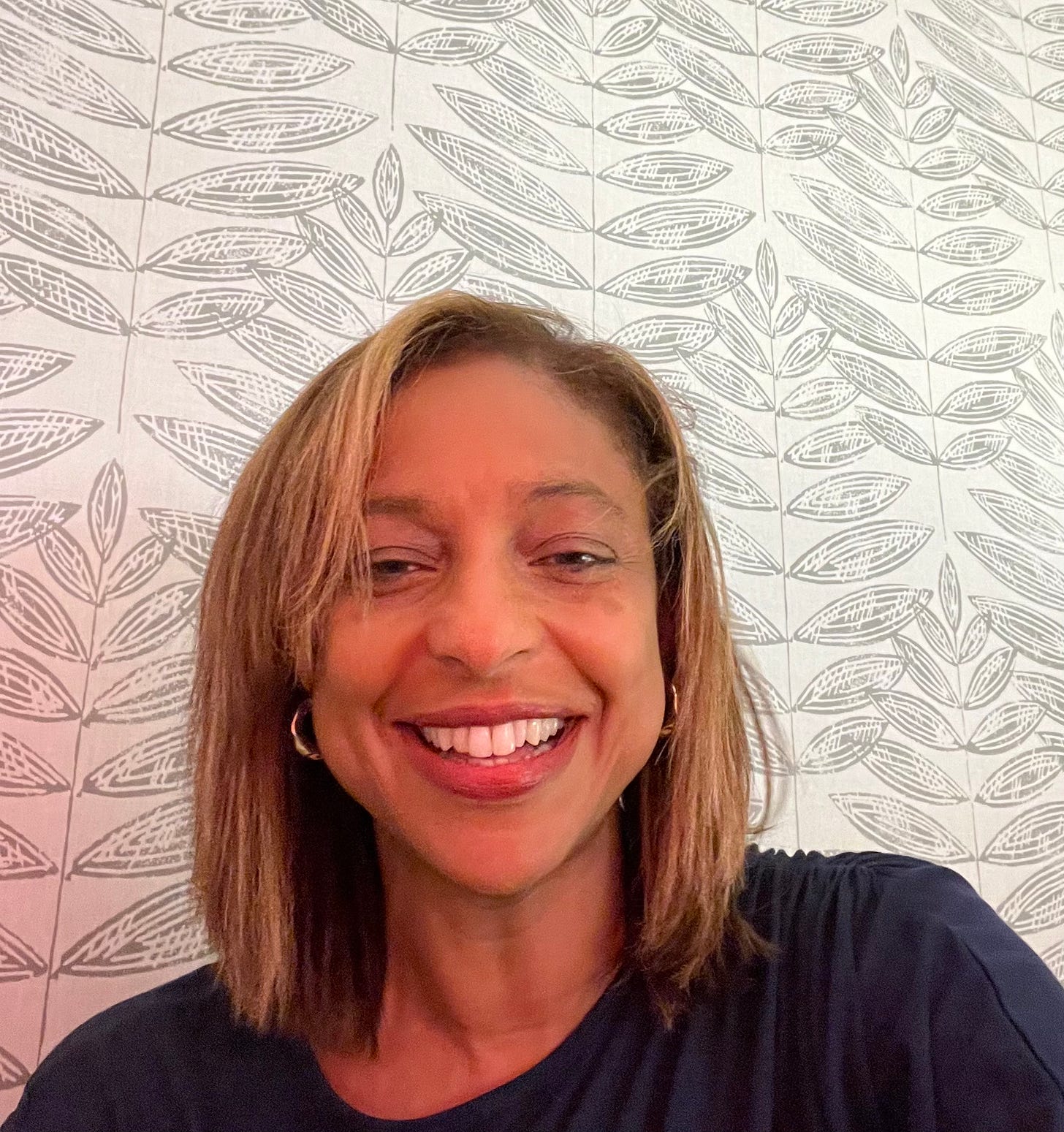Last time, I had the fun of speaking with Sybil Berry, a media-industry veteran turned entrepreneur in 2022, when she founded the cane and mobility company Lemonaide, Co. When a car accident left needing to use a cane, she realized she wasn’t the only one who hated her device: nearly everyone she talked to found theirs unstylish and wanted better options. (Link to original interview here)
The conversation with Sybil left me with so many valuable nuggets: about flipping setbacks into opportunities, dealing with the myriad other challenges life can throw our way, and handling all of it with grace.
Below, check out 5 takeaways from the interview.
Follow your curiosity to get started — don’t overanalyze or keep doubting yourself.
As a (chronic) overthinker, I was highly impressed with how Sybil just got started. Even though she came from the media industry, she didn’t spend months overanalyzing and doubting her ability to become the founder of a physical goods company. She simply looked to create the first version of what she needed to make — a prototype — and found the right resources and infrastructure to do it.
While that may sound straightforward, this is actually a huge feat. Most people don’t actually end up taking risks that would serve them, because they get stuck “researching.” This could mean reading books, seeking advice from people, or generally doing anything that feels like progress but actually is just an excuse for us to hide behind the scenes (I totally get it!)
You can approach people about sensitive topics in a respectful way.
If I had a cane, it would not occur to me to just walk up to others with canes and ask what their experiences were like. It’s not because I dislike talking to strangers — I find it can be incredibly enlightening, as you can see by the very fact I started an interview series 🙂). But I would normally be scared of coming off as too invasive or personal, especially inquiring about someone’s health.
But Sybil got her entrepreneurship journey started simply by her curiosity in asking other people, respectfully, what their experiences were like. She made friends and acquaintances and got business partners this way. In fact, she mentioned some elderly people in particular were thrilled to be approached, and taken aback that someone had a genuine interest in their story.
Hearing these experiences reminds me that wonderful things can happen when we reach out to others, in a sincere and respectful way.
Paying attention pays off.
I mentioned in the original interview that one of the first things I noticed about Sybil, when I first met her in person, was how much attention she paid to her surroundings. We were at a restaurant during lunchtime, and she was noticing how many people were on their laptops, presumably working remotely. She kept throwing out business ideas for all the ways their chargers could be more ergonomic. I was amazed — I didn’t even consciously notice everyone on their computers; to me, these people were just the background.
Similarly, Sybil paid attention when she was new to using a cane and started realizing how many other people hated theirs. She tunes in to every detail: how the stem of the cane feels in the wrist, if the walk feels bumpy or smooth with the cane.
How many other things do you think could be improved if we just paid more attention to our surroundings?
You don’t have to be thrown off by tough events. You can just accept them.
Sybil has dealt with many setbacks, even prior to the injury that led her to start her company.
I know that, for me, if I had to deal with the same circumstances, I would have a lot less equanimity and optimism than Sybil shows up with. When I asked her if she ever felt punished by the universe for everything she’s gone through (as I imagine my mind would naturally leap toward), she gave a very matter of fact answer: no. She believed that some people simply went through more arduous journeys than others. She acknowledged it was difficult to deal with everything, but she didn’t overdramatize or say she spiraled into overwhelm.
That, to me, is incredible, and a skill I am trying to work on more.
Interestingly, I asked a similar question to Andrew Gorbaty whom I interviewed last year, about his experience getting cancer in his twenties. His response was the same: he didn’t feel punished, just angry he couldn’t do more of the things he had imagined he would be doing.
Those answers are like a confidence boost to me: if these two don’t feel victimized despite the difficult things they have gone through, then I can face everything that comes my way, too.
Finally, you can turn every “problem” into an opportunity to help people.
To me this is the premise of “Celebrating Setbacks” (or as a friend of mine accidentally called it, “Celebrating Failures” — how hilarious). Hardships that we experience — whether physical pain, job loss, starting over in our careers — can be turned into lemonade if we learn the right lessons from them.
In fact, Sybil referred to her whole journey of injury and entrepreneurship as a “set- forward”: “There would be no Lemonaide cane company if I had not gone through all of these experiences and learned how to be an advocate for myself.”
—
You can read the original interview here.
I hope the conversation with Sybil inspired you as much as it inspired me. Stay tuned for our next interview — and I’d love to hear your thoughts in the comments!



Her journey? Beyond inspiring. Thank you Anna for sharing the importance of keeping an optimistic and realistic approach to life - first order of business need to check out Lemonaide